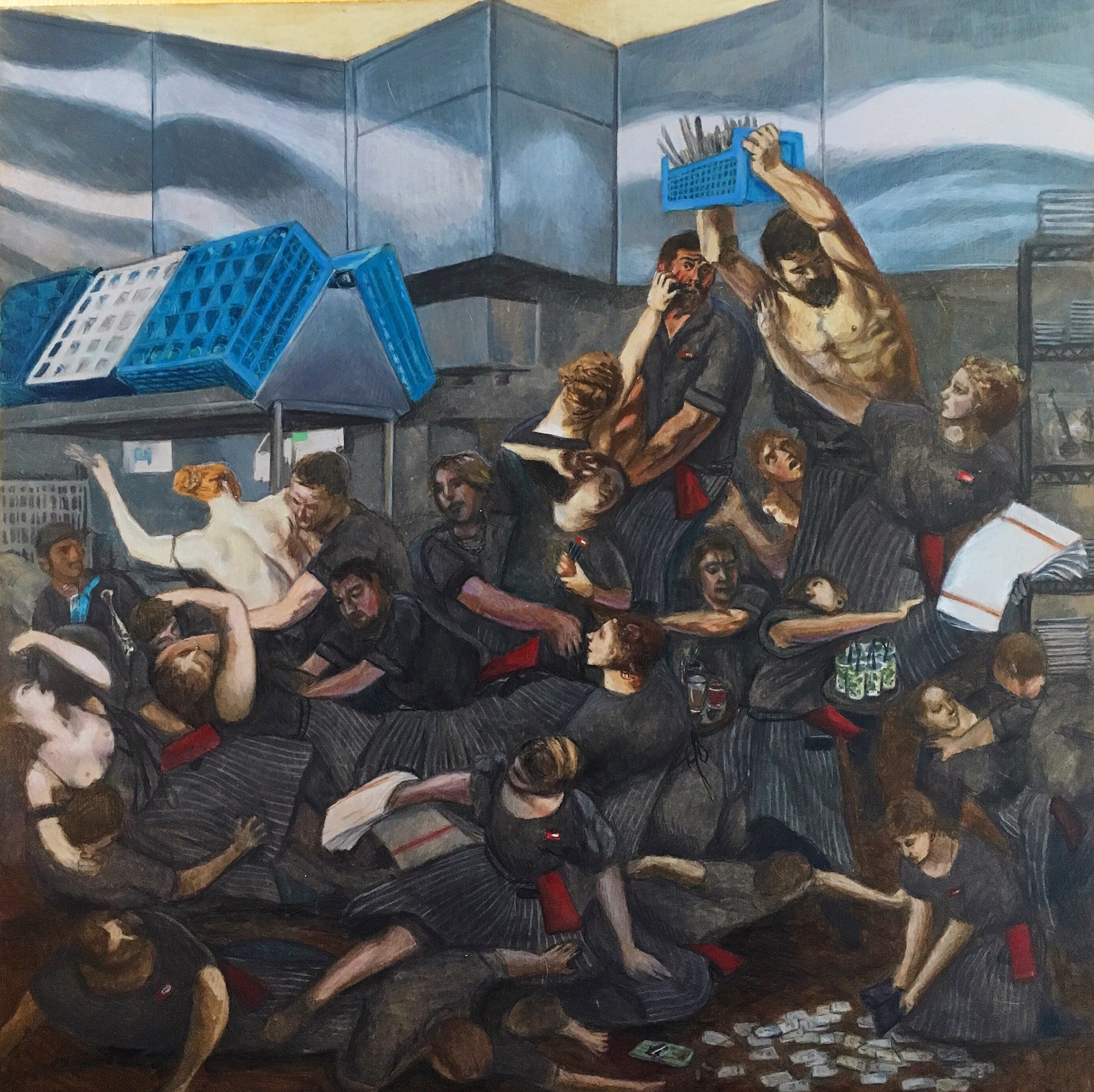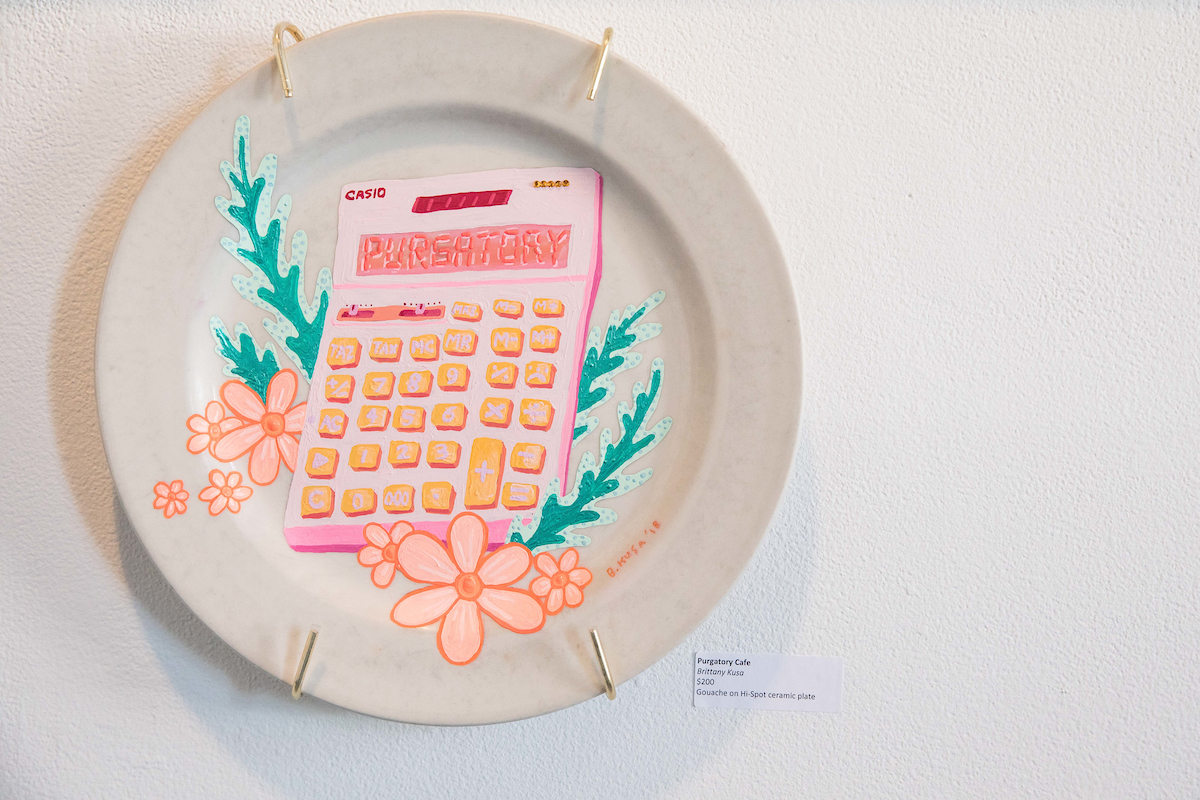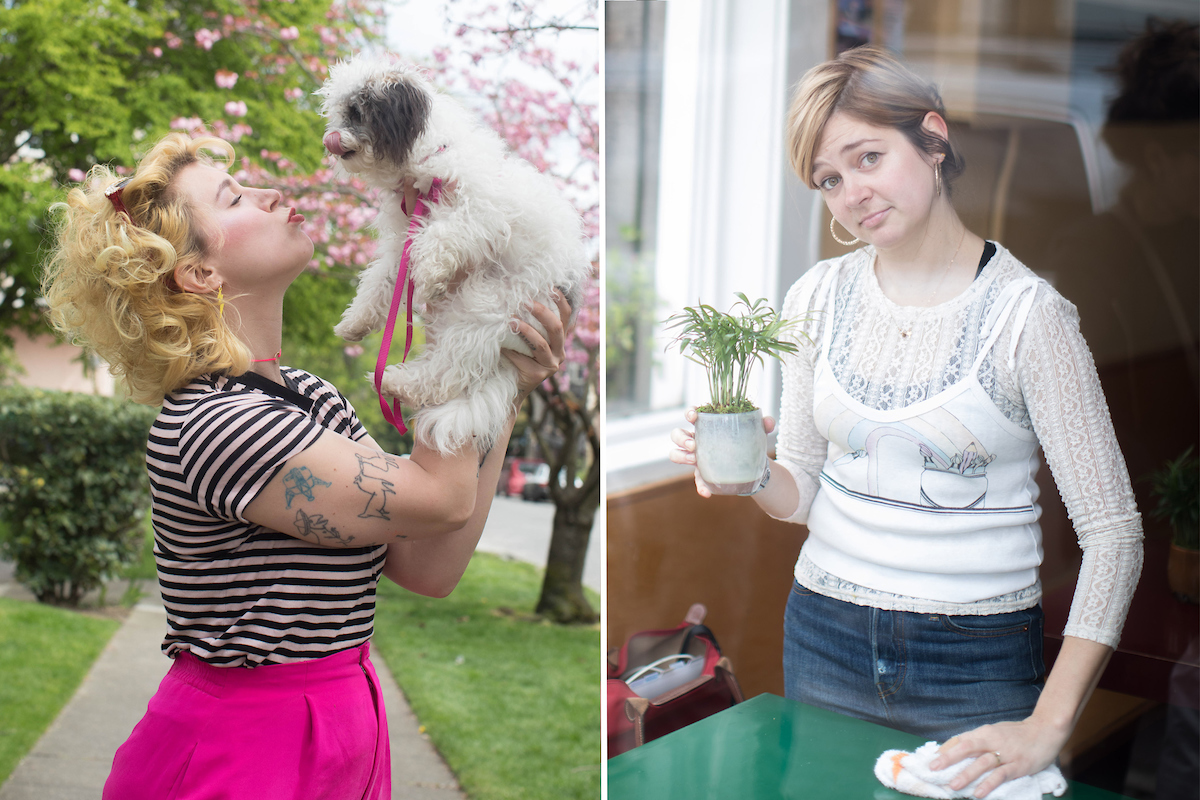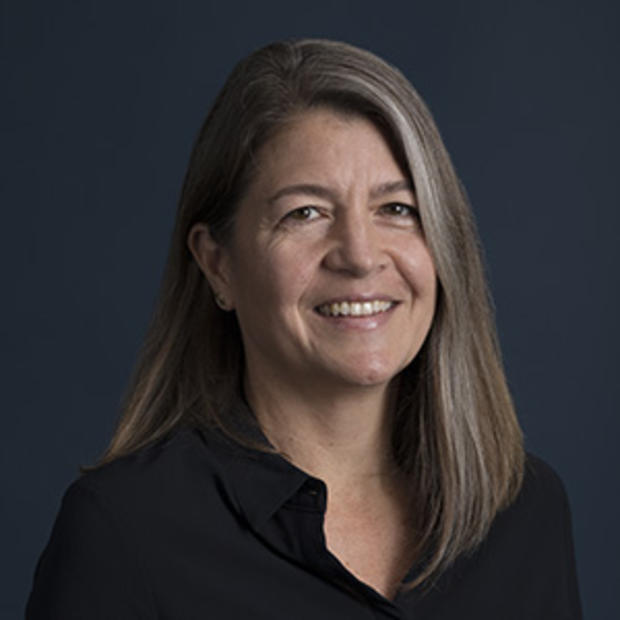Created by performance artist Darren Dewse, “Water” is part of a current exhibit called “Oh… You STILL work there?” at The Factory, which is housed in an old two-story building that seems to be covering its eyes and hiding from the surrounding rash of new development. Above the painted antique wood floors, the walls are filled with art about the service industry — art created by artists who know it well.

“The piece definitely comes from direct source material,” says painter, muralist and longtime restaurant worker Craig Cundiff. His piece, “Massacre in the Dishpit,” uses dark shades of colored pencil to depict a struggle behind the scenes at a restaurant, rendered as a classical Renaissance painting. “The chaos of the piece is based on a fight for clean silverware,” Cundiff explains. “Rolling silverware [into napkins] is one of the things that you always need to accomplish before going home.”

Judging by this show, Seattle artists have a well-honed sense of humor about what can be grueling work. Witness musician and artist Emily Nokes’ lovingly bejeweled vignettes of frequently used customer phrases, such as “I wanted this iced,” and “The music is still way way way too loud.” See also, Alex Llapitan’s Trader Joe’s logo, cross-stitched with “organic thread” on “locally sourced” cloth and titled, “Let Me Check in the Back.” And Tara Zumpano’s waitress-eye-view illustration “#LIFEOFASERVER,” in which a clipboard holding the bill also grips 10 credit cards and the presumed instruction to “split the check.”
While they poke fun at customers, these artists are also highly aware of the benefits service industry jobs bring — especially in a city that is significantly less affordable than it once was. “These jobs allow us to make art and make music,” says Timothy Rysdyke, director/curator at The Factory. “I wouldn’t be able to run an art gallery if I didn’t serve tables.”
Rysdyke works at the Hi Spot Cafe in Madrona, where cartoonist and illustrator Brittany Kusa has worked since 2010. “It’s never been a life goal to be waiting tables,” she says, “But service industry work is so flexible, plus I get free coffee and food when I’m working — so my basic human needs are met — and it doesn’t weigh on you. When you go home you can leave work behind, and make art.”
One of Kusa’s artworks on display at The Factory is a well-worn Hi Spot plate, decorated with the image of an old-school Casio calculator she says she uses regularly for complicated checks. Rendered in pink, the display reads PURGATORY in calculator font.

But Kusa is quick to say she loves the fact that her job allows her to meet new people all the time. Since her artwork is usually text-based, she finds herself picking up conversational tidbits to repurpose, particularly those uncomfortable moments to which she’s an objective observer — first dates, awkward business meetings, weird confrontations. “I think if I did have a lot of money I’d still keep a regular job,” she says. “It can be inspiring.”
An uncomfortable moment partly inspired this show. Artist and musician Lelah Maupin says a while back a friend of hers was working the brunch shift at Linda’s Tavern, when another old friend came in as a customer and said, “Oh… You STILL work here?” The insult got her thinking about all the artists in Seattle who are able to keep creating thanks to service industry jobs.
Maupin’s work in the show is a series of paintings of Linda Derschang, owner of Linda’s Tavern, Oddfellows, Bait Shop and several other popular local restaurants and bars. “Linda is a matriarch,” says Maupin, who worked at Bait Shop for five years. “She creates the best home for so many artists and musicians because to her it’s an asset to have these people on staff. I felt such a sense of belonging and I could support myself.”
Having recently left Bait Shop because her band Tacocat is gaining success, Maupin has traded the wee hours of the closing shift for the daytime gig economy — picking up dog-walking shifts through Wag and delivering lunches for the meal service Peach. The combination works well for now, but due to the breakneck pace of Seattle development, Maupin sees big changes ahead. The First Hill house where she lives with nine roommates is slated for demolition, so she and her bandmates are reluctantly considering leaving Seattle altogether. “Housing in Seattle is insane,” she says. “It’s hard to keep fighting tooth and nail to stay in a city that doesn’t want us.”

If you go: “Oh… You STILL Work There” runs at The Factory through May 3 (by appointment only). Closing party: April 28, 7-10 p.m. Free and open to the public.
Crosscut arts coverage is made possible with support from Shari D. Behnke.


